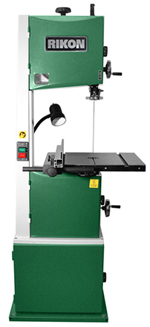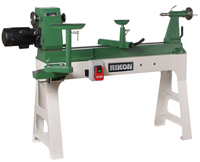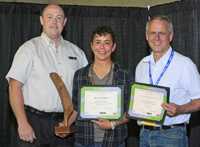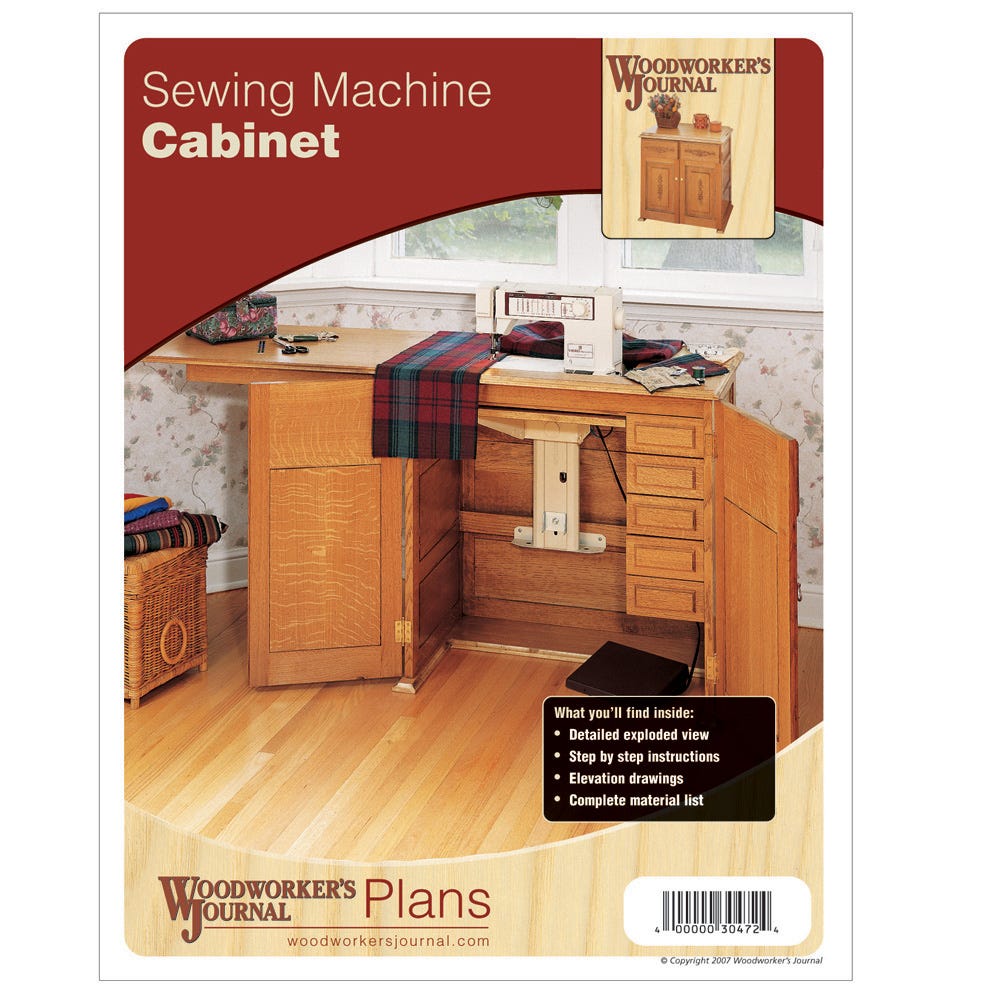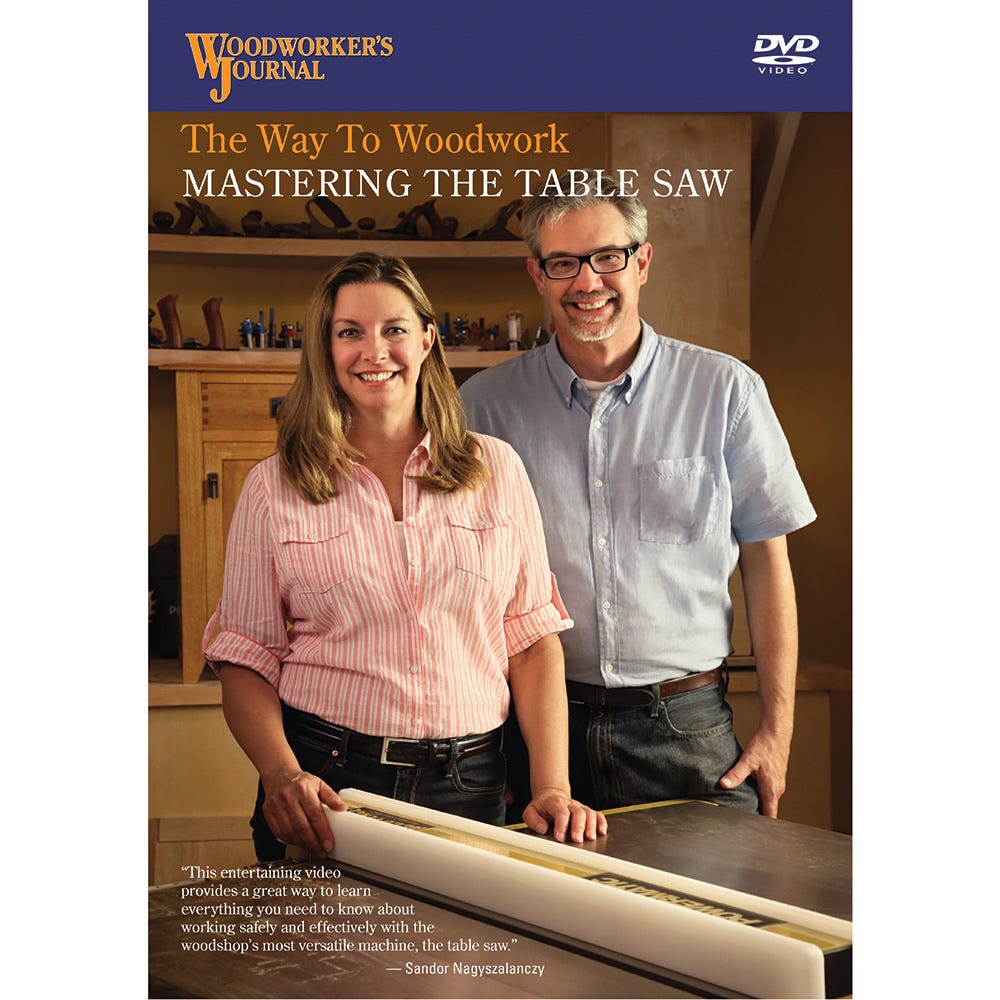
In a time when middle and high school woodworking programs are sometimes phased out due to budget cuts or are being replaced by other technology courses, RIKON Power Tools sees the turn away from woodworking curriculums as a call to action. Its response is to give, and give generously. To that end, the company takes a multi-pronged approach in supporting woodworking education.
Nearly since its inception ten years ago, RIKON has been providing tools to middle and high schools to improve their woodworking programs. Rod Burrow, vice president of technical support, recalls a study done by Purdue University, in conjunction with the National Science Foundation, that concluded that students who are given tasks that can be performed with their hands learn the concepts more quickly than by conventional textbook methods. “But, given the litigious society we are, schools are often afraid to let young people work with power tools that could potentially hurt them.” Hands-on learning only happens if kids can put their hands on tools, “so we need to help teach them how to use tools safely at at early age.”
Since middle- and high-schoolers can be hard on shop tools, Burrow says, RIKON reviews orders from schools that come in for repair parts. Eighty to eighty-five percent of those orders are fulfilled and shipped to schools at no cost. “Sometimes bureaucracy can get in the way of a shop teacher’s ability to keep machines up and running safely for students. If we can provide free parts, it’s one small thing we can do to support them.”
RIKON, which is based in Billerica, Massachusetts, also learned that only 53 out of 400 secondary schools in their home state had shop programs, “and we thought we could do better.” So, recently the company donated a full shop’s worth of woodworking machinery to Marshall Middle School, which “is literally in our backyard.” A 16-in. planer was donated first in 2010, then a surplus of other tools have followed.
RIKON has extended its support of woodworking eduction to post-secondary institutions and students as well. At the 2007 Association of Woodworking and Furnishings Suppliers (AWFS) Fair, the company won a “Best Show Booth” award and became aware of AWFS’s Fresh Wood Student Competition. The juried contest highlights projects submitted by full-time students in an accredited high school or post-secondary woodworking or related program and part-time students in an accredited post-secondary woodworking or related program that are transitioning into a career in woodworking or design. At the 2009 AWFS Fair, RIKON began donating machines for the Best of Show winner and his or her school. The company also gave Bravo to Teacher Award tool prizes to two outstanding educators for their hard work and dedication to students.
At last summer’s AWFS biannual Fair, the Best of Show winner received a RIKON mini lathe, and the participating school received a 14-in. deluxe band saw. A contractor’s table saw and a 16-in. planer were donated to the schools of the Bravo to Teacher Award winners.
Looking ahead to next year’s AWFS Fair, Burrow says RIKON will again be donating tool prizes to the Fresh Wood Competition at the same level as has been done previously, “and we’d like to do more if we could.” He says the company adheres to AWFS’s guidelines for limits on tool donations.
Of course, woodworking education extends beyond the structured classroom, too. RIKON also supports learning opportunities among hobbyists. One evening a month, the Association of Revolutionary Turners, a Billerica-based woodturning club, holds its meetings at RIKON’s headquarters. The company provides a classroom space and several lathes for the club’s show-and-tell sessions, demonstrations and hands-on turning. “At the next meeting, in fact, I’m going to be conducting a session on tuning up and maintaining a lathe,” Burrow adds.
Whether at national, state or local levels, RIKON is committed to supporting education at a “grassroots” level, but Burrow sees the outreach as a form of corporate responsibility as well as an opportunity. “Woodworking as a whole needs to be cultivated in order for new people to come into this craft, or woodworking will decline. We’re just trying to do our part.”
